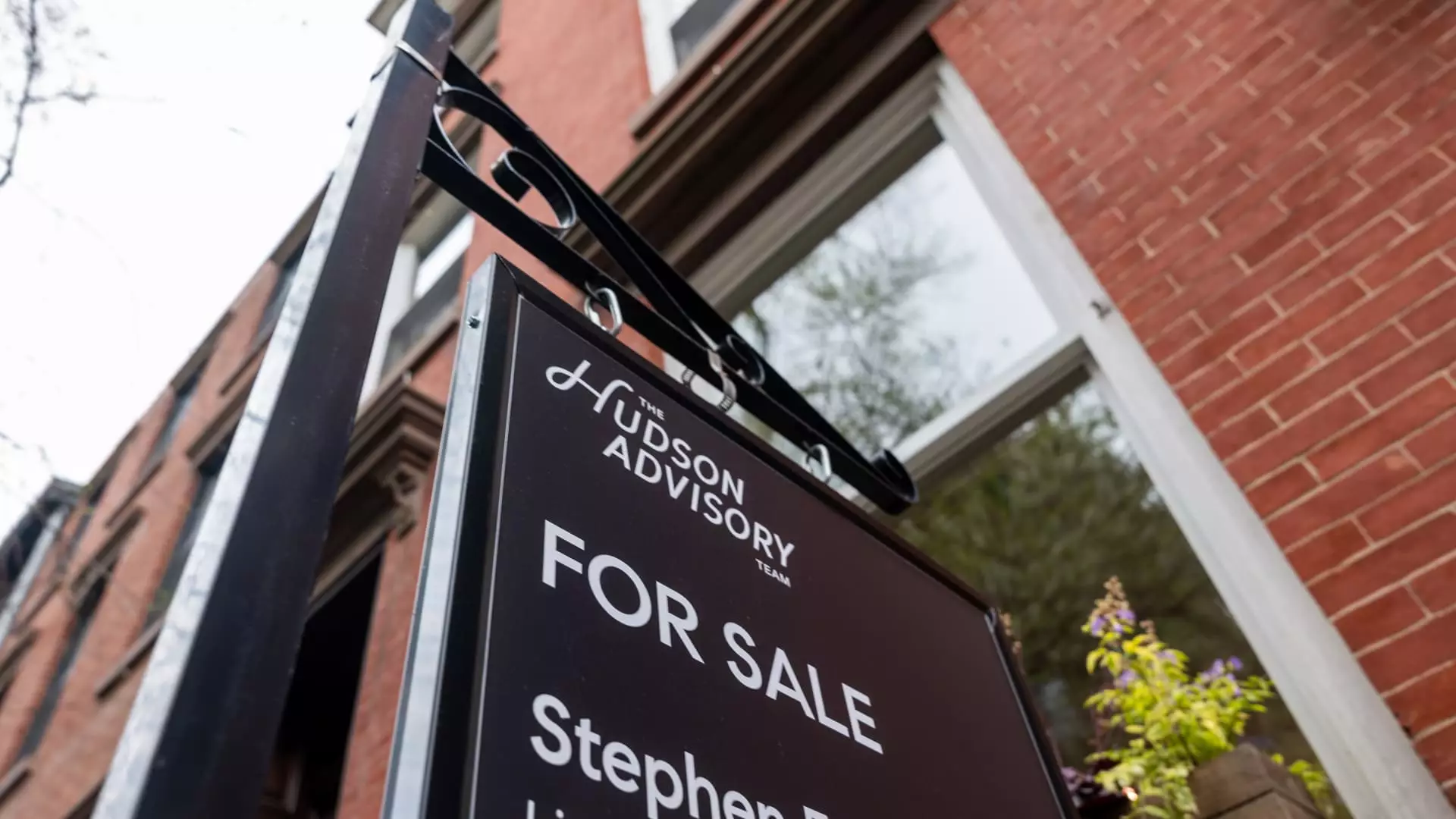The unsettling nature of the mortgage market has become painfully apparent, with the average rate on the popular 30-year fixed mortgage hitting 7.1%, a level we haven’t witnessed since mid-February. This surge, a notable spike of 13 basis points in just one day, exemplifies the volatile conditions that homeowners and potential buyers are currently navigating. The frenzy is exacerbated by the tumultuous political landscape and the resultant economic repercussions, particularly evidenced by the abrupt fluctuations in bond yields earlier this week.
Trump’s Tariff Tango and Economic Instability
The roller-coaster began with President Trump’s hamfisted implementation of new tariffs affecting numerous nations, which sent bond yields soaring immediately, akin to a kid on a sugar rush. While the President’s quick decision to lower some tariffs temporarily eased the situation, the underlying issues regarding crucial tariffs, such as the staggering 145% on Chinese imports, linger ominously. Such erratic policy decisions stoke uncertainty in the market, causing investors to sell off bonds hastily, a cycle that leaves mortgage rates reeling in their wake.
The Unfortunate Reality of Inflation
In this volatile environment, a worse-than-expected monthly consumer sentiment report amplified fears, revealing that expectations for inflation soared from 5% in March to an alarming 6.7% in April—the highest in over four decades. This inflation surge is detrimental for consumers who rely on mortgages for their homes, their largest financial investment. High inflation imposes an additional burden, prompting higher interest rates, engulfing potential homebuyers in a financial quagmire where affordable housing becomes an elusive dream.
The Dismal Future of the Housing Market?
Matthew Graham, the chief operating officer at Mortgage News Daily, bleakly reflected on the current bond market. Labeling it either as the end of the worst week for 10-year yields since 1981 or a painful norm over the past year and a half, he highlights that we cannot overlook the implications of these shifts. It suggests a disheartening forecast for the housing market, which typically flourishes during the spring season. As the most critical time approaches, escalating rates may stall momentum, forcing both buyers and sellers into an economic standstill.
Consumer Trust: A Casualty of Economic Instability
As these financial tremors continue to destabilize the market, consumer trust dwells in jeopardy. Considering that for most families, their home represents a central pillar of wealth, this volatility breeds reluctance. With rising rates and persistent inflation, the fear of making a commitment to homeownership rises substantially. The ongoing uncertainty arguably cultivates a more cautious consumer base, hesitant to engage in the housing market amidst economic chaos.
In retrospect, the current financial turmoil poses existential questions about the future of mortgage lending and the broader economy. We are left to ponder: Does America have the resilience to adapt to these accelerating challenges, or are we edging closer to a profoundly negative housing crisis that could echo through generations?

